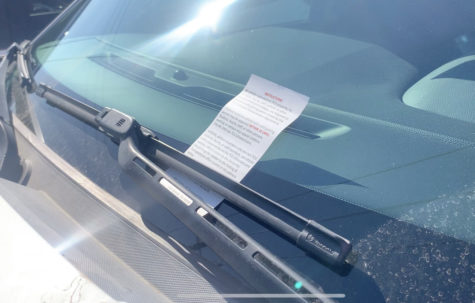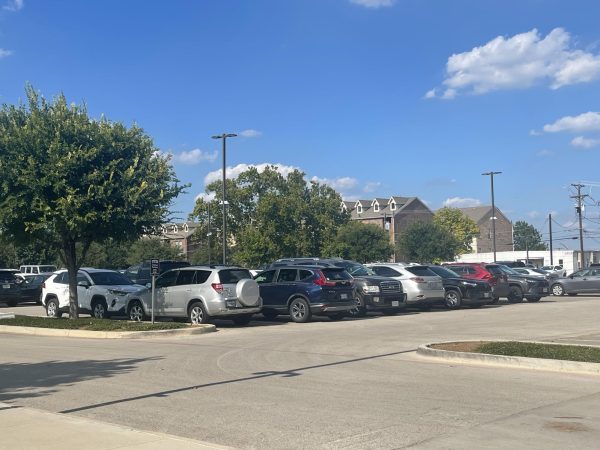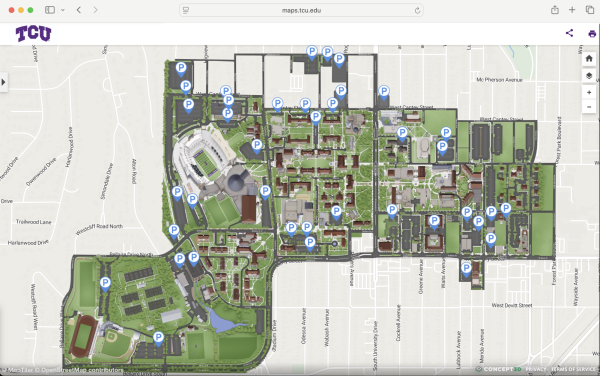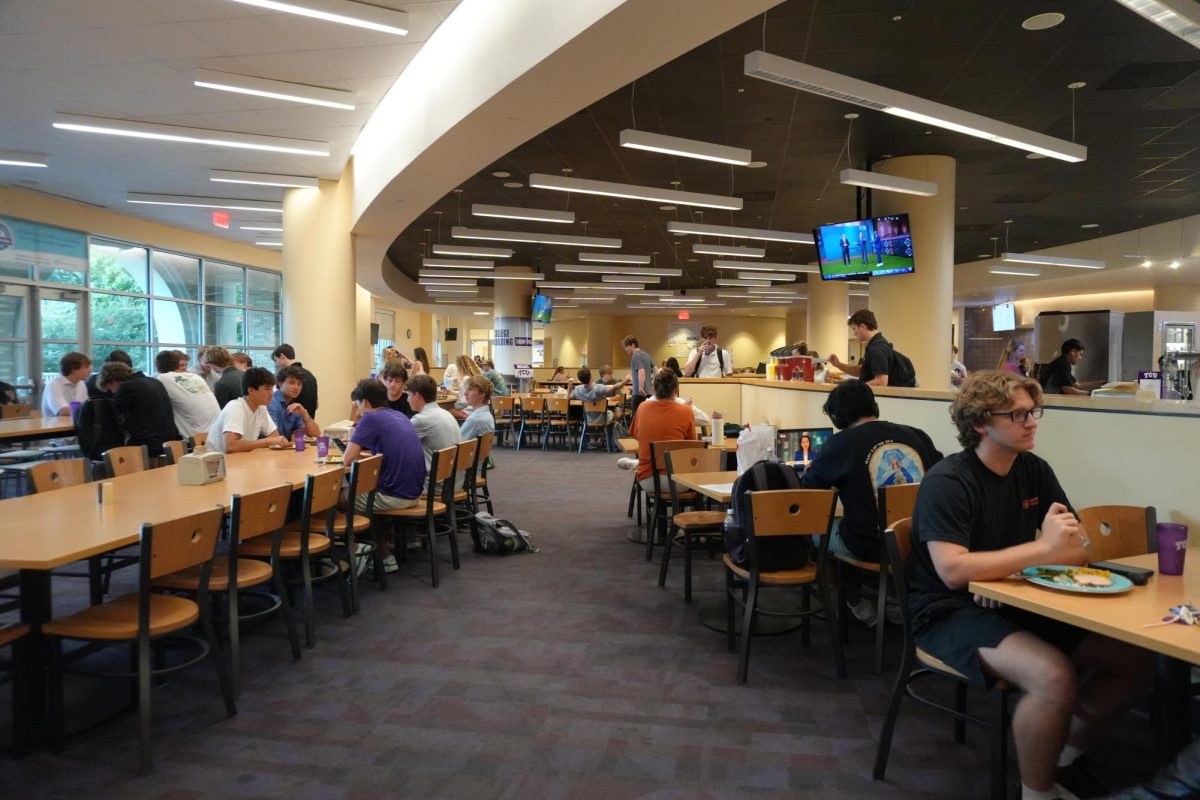TCU Police will have some assistance this fall when it comes to policing parking lots.
Police will still be ticketing vehicles parked where they aren’t supposed to be, but license plates will also be scanned as vehicles enter parking lots and violators can be cited via email without an officer having to issue a ticket.
The crackdown comes as 1,200 parking spots have been eliminated for various reasons. Some parking areas will be reserved for permit holders such as Frog Alley for commuter permits and Molly Reid Hall for Tier 1 faculty permits, as much of east campus is being transformed with dorms, parking decks, retail spots and green space.
With all of the major changes to TCU’s parking arrangements and permit system, here’s what students, faculty and staff need to know as the beginning of the school year draws near.
Parking Permits and Enforcement

Parking permits will now be fully virtual and verified through the registered license plate rather than the windshield sticker used in previous years. When purchasing a new parking pass, students and faculty will list their license plate and TCU ID numbers as well as other contact information.
Cars in campus lots will be checked by a combination of manual enforcement and License Plate Recognition Technology (LPR). The LPR system will automatically scan license plates that enter and park in TCU parking lots to verify the status of that vehicle’s permit. Vehicle owners will be notified of parking violations through email in addition to any physical citations that drivers may receive from the TCU Police.
The Office of Student Affairs, which took the lead in planning and implementing these changes, wanted to create a system that was more efficient, consistent and equally enforceable among all drivers on TCU campus.
“The contraction of parking spots on our campus for this fall is significant” said Jude Kiah, associate vice chancellor of student affairs. “In order for that to work, we needed a much more efficient system of enforcement. We already had the T2 administration system in place and license plate readers at particular entrances to campus. LPR’s in parking enforcement are just an extension of that.”
Parking Lot Closures

In addition to the new permit system and enforcement procedures, TCU also announced an increased number of parking lot closures for the 2025-2026 school year. Most of this is due to the ongoing construction as a part of TCU’s “LEAD ON To The Next 150” campus improvement plan.
This year’s construction projects required TCU to close a larger number of parking lots, leading to a loss of 1,200 parking spots for students, faculty, staff and visitors than last year, Kiah said. Additionally, TCU will continue to close certain lots intermittently for sporting events, concerts, competitions and other campus activities.
What do TCU drivers need to do?
The TCU parking portal opened for the 2025-2026 school year on August 4. Students faced hour long waits to purchase their digital permits online.
When filling out the form, everyone was encouraged to check that their address, contact information, ID number and license plate are correct for billing purposes and to update this information in the parking portal anytime it changes to avoid mistaken citations.
To make sure everyone finds parking and gets to class on time, on-campus students are encouraged to walk, ride bikes and scooters, or use the Leap (TCU’s new transportation system launching this fall).
Commuters should add 15 minutes onto each end of their commute, Kiah said.

Citations will include a link for those who want to appeal where pictures and written appeals may be submitted to a committee for review. TCU’s
LPR website also recommends that TCU drivers check that their vehicle is legally registered and that their license plates are fully visible. Anyone who is unsure about whether their vehicle is registered or may need to change their plate number can contact their state’s DMV to verify their status.
For parking lot closure updates and additional info, anyone can visit parking.tcu.edu which includes maps, and information on regulations, permits and fines.









